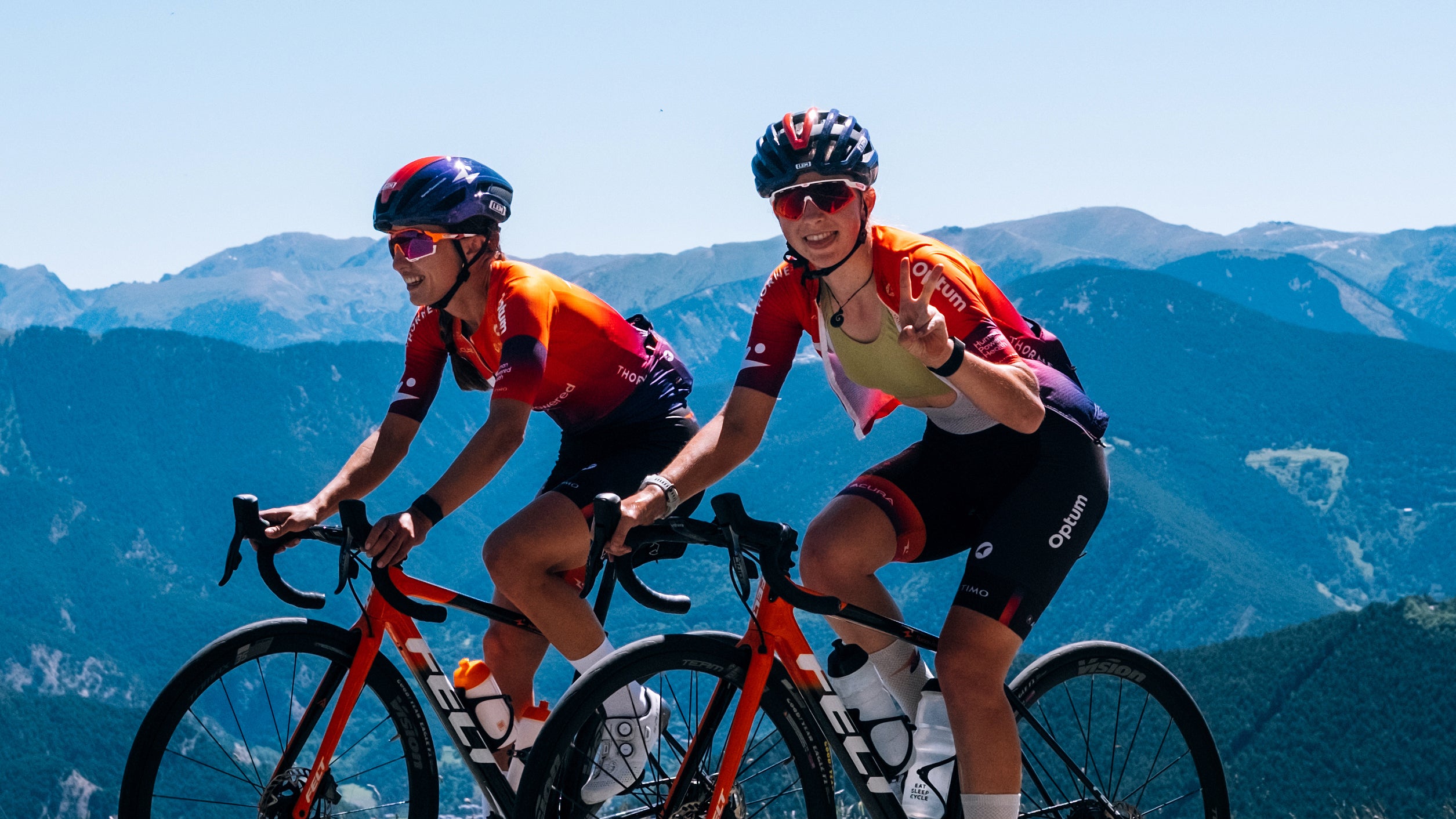of Team Human Powered Health is racing in the inaugural Women’s Tour de France Femmes Avec Zwift, which begins Sunday in Paris.
I remember being about nine years old and watching the Tour de France on television with my family. I told my parents: “I’m going to ride it someday.” I didn’t care that women couldn’t ride in the Tour de France. Now, more than a decade later, it feels wonderful and surreal to be fulfilling my childhood dream. On Sunday, in Paris, I’ll start the inaugural Tour de France Femmes Avec Zwift.
My name is Henrietta Christie, and I am a professional cyclist from New Zealand. At home, we have always felt a little bit removed from what was going on in pro cycling overseas. The big goal for me growing up was to get to race professionally in Europe, but there were some people who thought that was impossible, questioning how I’d actually make it to the European peloton.
My answer then was that I would make my own path. One important step was meeting my coach, Elyse Fraser, and her husband Andrew, both of whom helped me along my way as I chased my goal of racing in Europe. The 143 other cyclists competing alongside me also forged their own pathways to the Tour de France Femmes.
My Human Powered Health teammates and I are excited—and nervous—as we make our final preparations. Everyone is coming in with great fitness. We’re expecting a hard race, and there’s something uplifting about the challenge: the best women in the world will be bringing their absolute A-game and making history.
We’ve reached a new height in women’s cycling. Everyone knows the Tour de France, even if they don’t follow cycling.
It’s been a long time coming, of course.
From the other side of the world, we were following the progression of women’s cycling for years. My dad would tell me: “By the time you get to Europe, there may actually be a Tour de France for women.” It’s an incredibly exciting time to be a woman cyclist—there are more women’s races now than ever, and new races will be added to the World Tour next year too.
Every female pro cyclist that I know is excited, because the Tour de France Femmes is a sign that we’re getting more races, longer routes, and harder and more diverse courses. Our race has a true mix of terrain, with stages for sprinters, an extremely long stage, a course with gravel, and mountaintop finishes. The diverse route answers a question we all had when the race was first announced: Would it be an average event with the Tour de France logo stamped on it? Or, would it be a real challenge? In my estimation, 95 percent of the women’s peloton believe we’ve been given the Tour we’ve been asking for.
This has been a long time coming, and, understandably, riders who are further along in their career may be frustrated that they’re just now getting their shot to race the Tour. But I’m at the start of my career, and my main emotion heading into the event is gratitude that the race organizers finally listened to the riders.
Our race has a true mix of terrain, with stages for sprinters, an extremely long stage, a course with gravel, and mountaintop finishes.
I am relatively new to stage racing at this level, and I just want to be a giant sponge. I’m going to absorb everything, learn, and race hard.
I pursued cycling because I love it, even though it’s brutal. If you enjoy it, then you challenge yourself more, and go out of your comfort zone—which can make all the difference in a race.
My success will come from helping the team, supporting them, and trying to be a teammate that they can count on. But I also want to see what my climbing skills are like when the road goes into the mountains. When we work together as a unit, we can achieve anything.
Behind every race, there are hundreds of people pulling it together to make it happen: the teams, organizers, and sponsors. The friendly, close-knit community in cycling is unique and beautiful. I would be remiss not to thank them now, ahead of this moment of history.
The women’s peloton is stronger than ever: there’s so much talent from across the globe. The fields in our races are huge. There’s never been a better moment for us to have this race.
There’s something magical about the Tour. It’s the calling card of our sport: the biggest advertisement for bike racing, something known around the world and with the power to inspire. We weren’t big cycling fans when my family tuned into the Tour all those years ago, but the event captured our imaginations.
The men’s Tour shaped my whole idea of cycling, and it’s special to now have a women’s version, and to know that we can shape younger riders. We want to say to girls all over the world, from New Delhi, to New Jersey, to New Zealand too: “Look, there’s a women’s Tour de France, and yes, you can race it.”


